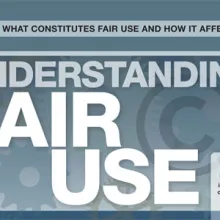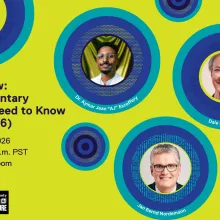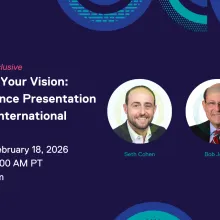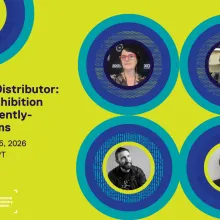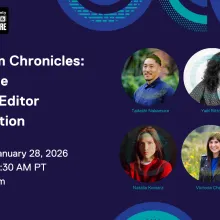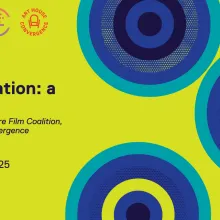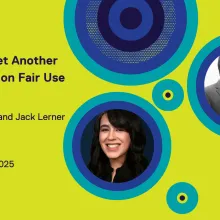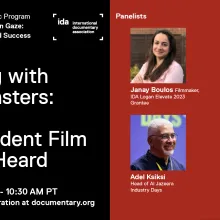Moderated by IDA Board Member Stephen Nemeth of Rhino Films, our panel of veteran non-fiction producers will discuss what to expect when producing a doc and how a successful producer gets the entire production team to deliver their best.
Seminar
The Fair Use Doctrine allows for copyrighted materials to be used without permission or payment—under certain circumstances. But what are these circumstances? How is fair use determined? What is the impact the Digital Millennium Copyright Act and its exemptions on documentary filmmaking? And how does using copyrighted material under Fair Use impact documentary filmmakers?
In this panel, we will address standards for using AI in nonfiction filmmaking, how to disclose it to partners and audiences, and what documentary filmmakers need to consider before choosing to use AI in their productions.
Don’t know what E&O insurance is? Seth Cohen and Bob Jellen from HUB International will start with a virtual 30-minute Zoom presentation on insurance for documentaries, during which all of the above questions will be answered.
In this panel, we will meet leading film bookers working in the U.S. and hear about the strategies and opportunities for placing independent films in theaters.
In this session, two critically acclaimed filmmaking teams will share the granular details of their working relationship, walking through scenes from meaningful recent films.
Does the language of mergers and corporate media consolidation leave you confused or unsure of how it may impact you and what you can do about it? To understand more, join this free community teach-in hosted by IDA, Future Film Coalition, and Art House Convergence.
Location: Hybrid, virtual on Zoom or in-person at IDA Office in Los Angeles In today’s rapidly evolving political and technological landscape, a legal
The panel discussion will delve into the differences between television/broadcast content and international festival documentaries and how funding works in these different spaces around the world. What does it mean to have broadcast partners versus festival partners? Does one offer more creative freedom than the other? How can we negotiate the drawbacks and best use the opportunities these different forms offer? The conversation will examine broadcasters' priorities and ways they evaluate content that might drive them to co-produce, buy, or broadcast certain films instead of others.
Filmmakers of color often encounter pushback from the industry around how to tell our stories our way. We are nudged to sacrifice our vision, our creativity, and sometimes even the truth, in the name of commercial viability and mass audience appeal. How can we be supported to tell stories outside of the dominant gaze, if most formative spaces for international artists are trying to make a film “accessible” to a mass audience?

